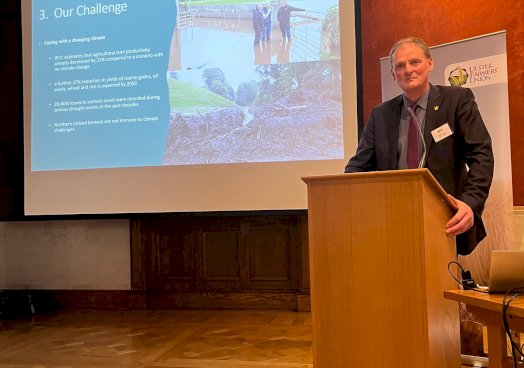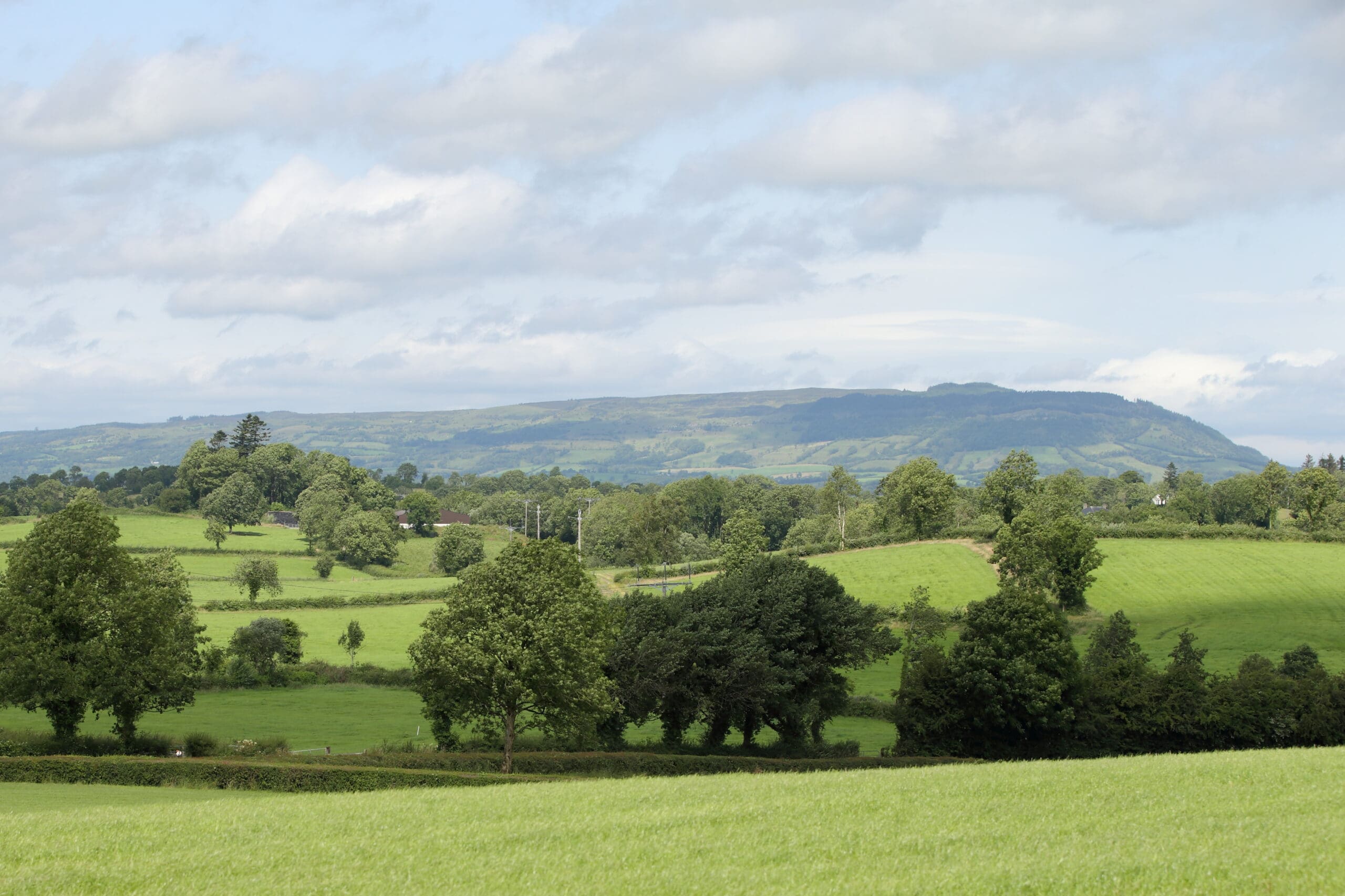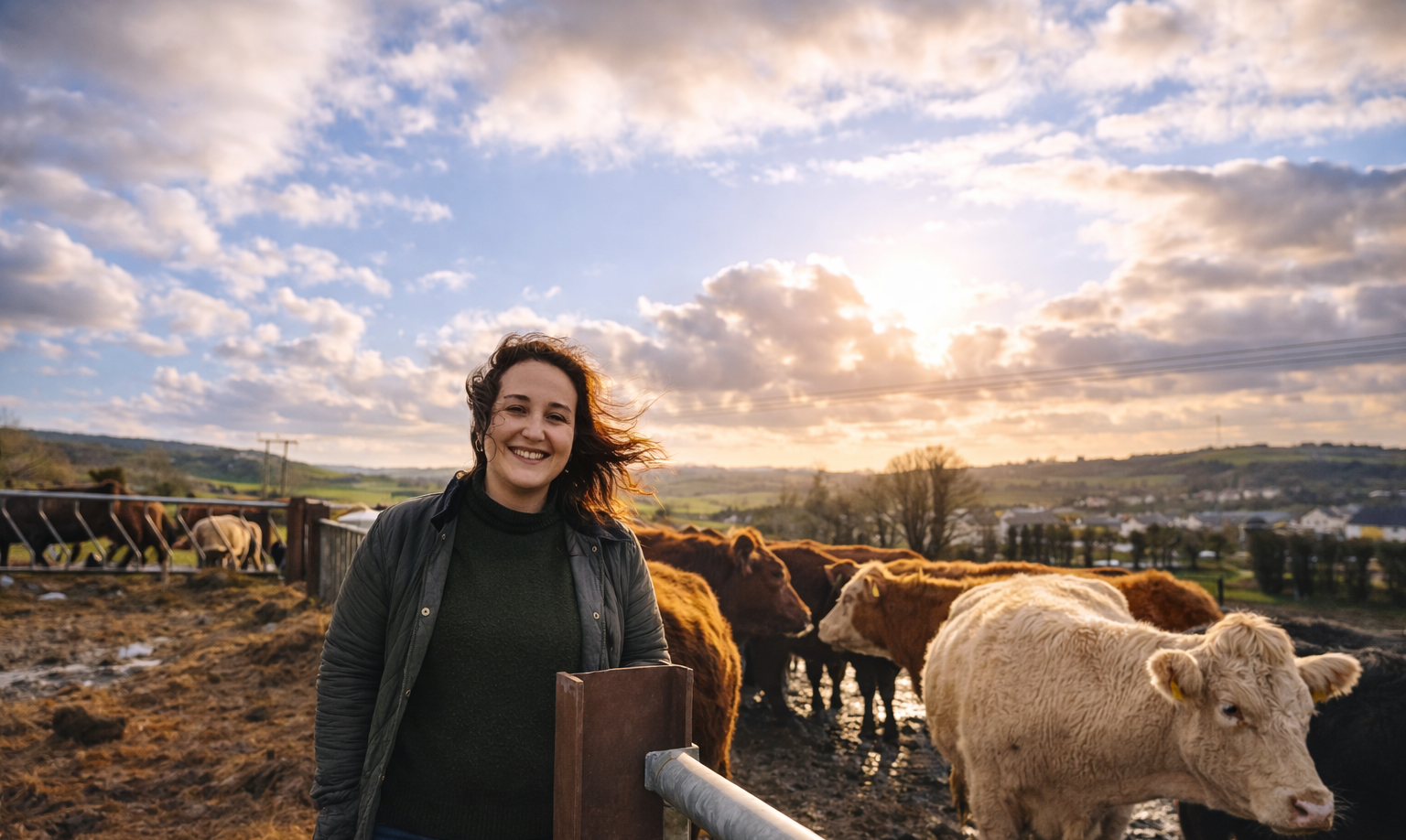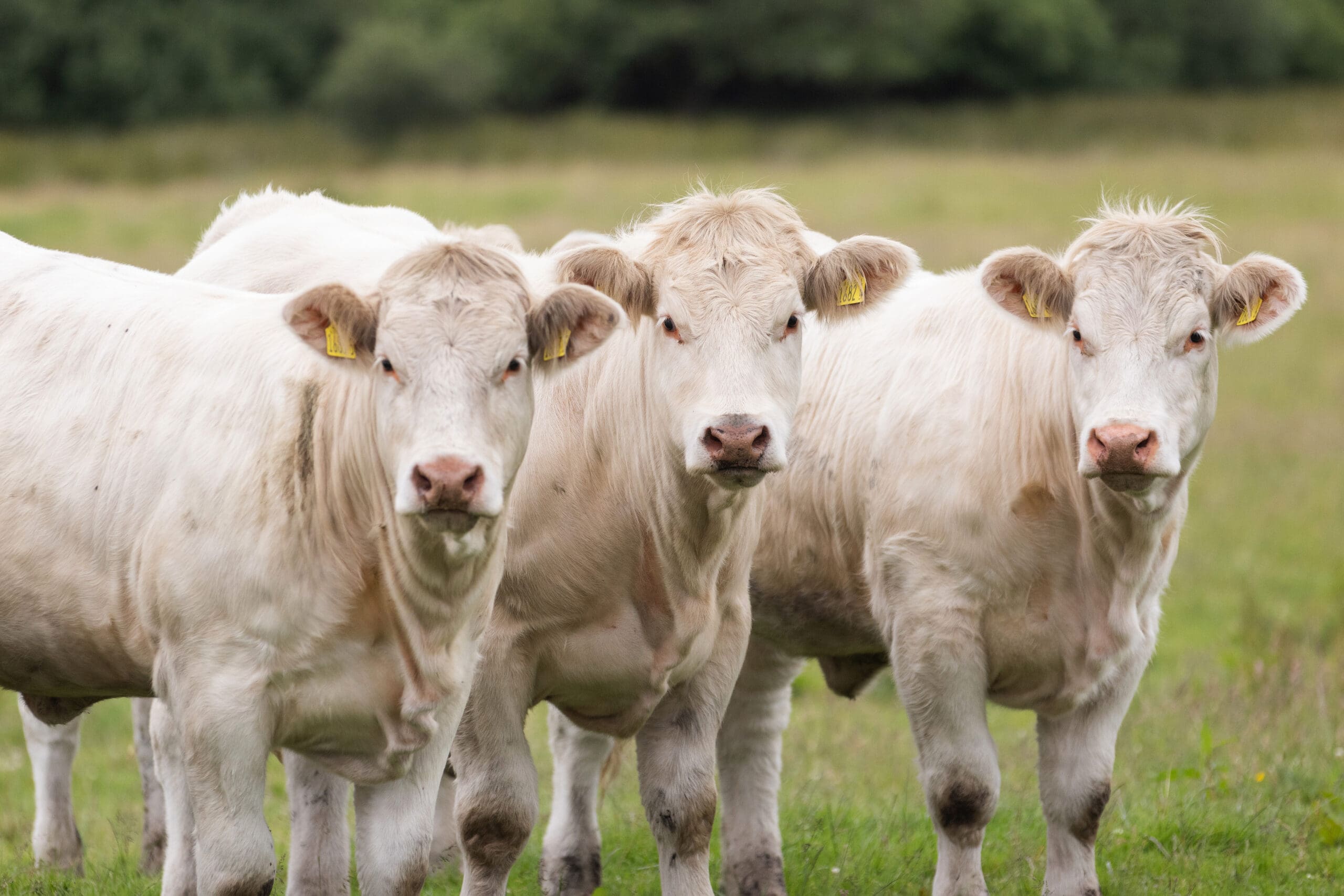
To mark COP27, the Ulster Farmers’ Union (UFU) hosted its event ‘Northern Ireland Agriculture – on a Journey to Net Zero’ at Stormont. Political representatives from NI, alongside journalists, gained an in-depth insight into why farming is so important to combating climate change while meeting the rising demand for food as the global population is forecast to reach 10 billion by 2050.
UFU president David Brown outlined the Union’s vision for NI farmers to meet the challenges ahead:
- NI farmers will play their part in reducing emissions while feeding the nation. Farmers will help NI to meet its climate change targets while at the same time providing food produced to high environmental and animal health and welfare standards.
- NI farmers will adapt and become more resilient to producing food in a changing climate, some may consider new opportunities for land use as well as contributing to renewable energy and the bioeconomy.
- NI farmers will continue to be the backbone of rural communities with a vibrant climate friendly agri-food sector continuing to provide employment, sustain ancillary businesses and play its role as a key part of the NI economy.
- NI farmers will work in partnership. The journey to net zero is not a path that farmers can follow alone. It’s vital that policy makers, researchers, advisers, food processors, energy companies, retailers, banks, politicians, NGOs and consumers work with farmers in finding the right solutions.
Mr Brown said, “Farmers are at the forefront of a changing climate and it’s in everyone’s best interest to mitigate and adapt our farm businesses to address this global challenge as it affects every person on this planet. It was extremely positive to see our political representatives and members of the press in attendance at our climate change event at Stormont. A crucial message was that yes, we recognise agriculture is a key source of emissions in NI, but it’s vital that a balance is struck between reducing emissions and feeding people. This is a massive challenge for famers and the whole of society, especially when local food production is already under severe pressure due to rising energy costs coupled with workforce shortages. In particular, the poultry, and fruit and veg sectors are under serious strain with UK supply issues being reported. It’s vital that the urgency of protecting local food security and our NI agri food sector is recognised during climate discussions. We’re all on this journey towards net zero and farmers are committed to reducing emissions while feeding a growing population with high-quality food produced to the highest standards.”
On 15 November 2022, the world population reached eight billion. Despite more than trebling from 2.3 billion in 1945, the agri-food industry successfully produced enough nutritious food to meet the growing demand globally during this period. In order to continue in line with population predictions for 2050, agricultural production will need to increase by an estimated 60 percent from a decreasing area as population and climate pressures are reducing the land available for food production.
“Meeting climate change targets and feeding an increasing population while coping with a changing climate were all discussed at the event. We highlighted that agriculture and the land-based economy are uniquely placed to capture the primary greenhouse gas, carbon dioxide, from the air. Farmers can then turn it into a range of food, fibres and fuels, supporting our ambition that agriculture can and will combat climate change while continuing to deliver nutritious food supporting the economy and rural communities in the process.”
The UFU also outlined the significant work that is already happening to reduce emissions and increase carbon sequestration.
“The UFU is involved with a vast amount of work to drive further climate change awareness and action on NI farms. It’s extremely wide ranging from agri-education campaigns highlighting agriculture as part of the solution to being involved in the Agriculture and Land Use Alliance. We are currently working with industry partners to deliver a major ruminant genetics programme, and AFBI and Queen’s University to help decarbonise NI’s energy sector.
“Local farmers can and must be part of the climate change solution and with the right policy and support from politicians combined with the drive and willingness of our farmers, we will play our part in delivering climate change targets but we must not undermine our ability to feed the nation,” said Mr Brown.




